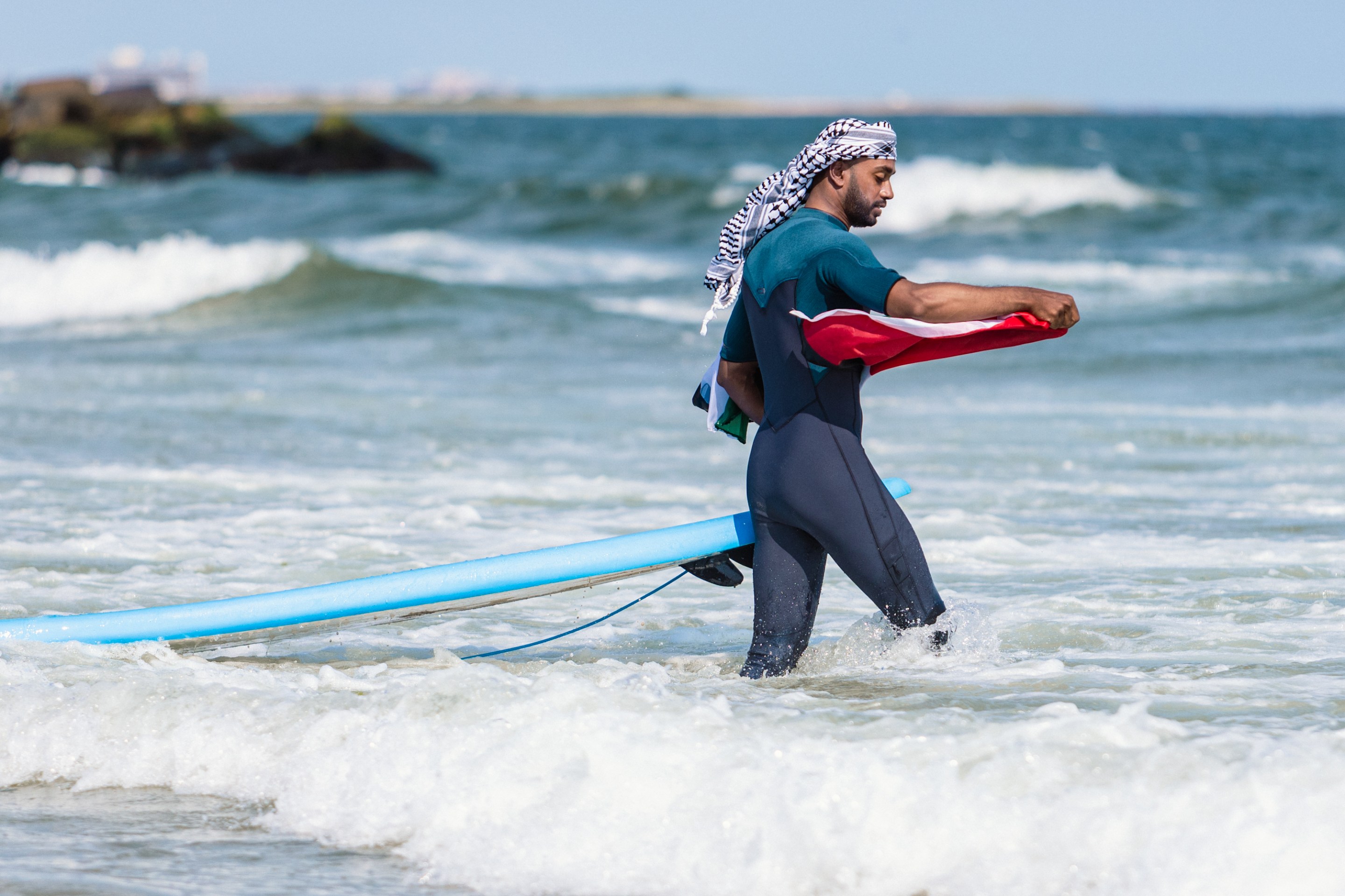ROCKAWAY, N.Y. — The weather was ideal for a beach day. It wasn't too bad for surfing, either. At Beach 65th Street in Rockaway, dozens of surfers entered the ocean, trudging through the water until the waves could carry them away on their boards.
The July 21 paddle-out was organized by Surfers in Solidarity, a small New York community organization that has spent the past year raising money and awareness for the people of Palestine through the conduit of surfing. Traditionally a ceremony done to memorialize someone who has passed away, a paddle-out has also been used by surfers as a form of protest. That day's ceremony at Rockaway was a little bit of both. As the surfers formed a circle in the water, hand in hand, the coastal winds caught the fabric of a Palestinian flag. They were there to mourn the lives lost in Gaza and to call for a ceasefire.
"As surfers, we have access to the ocean and we have access to the energy of the planet. And we have these privileges as Americans ... but Palestinians in Gaza don't have access to their own beaches in the same ways," said Paul Godette, a frequent Rockaway surfer who participated in the paddle-out. "I think it's important for us to stand up for the rights of Palestinians."
That day's paddle-out wasn't the first organized by Surfers in Solidarity. On the stormy morning of Dec. 3, the surfers had gathered on an otherwise empty stretch of beach at Rockaway. They entered the icy waters, carrying a Palestinian flag with them.
When Surfers in Solidarity gathered this time, they hosted in conjunction with the local activist group Rockaway for Palestine. The warm weather had turned it into a community beach day. As I arrived around noon, the event was just coming into swing. Trays of food were being set up for a potluck, and attendees were arriving with keffiyehs and portable beach shades in tow. Surfboards were lined up in the sand, with one propped up against a tent, words painted on its side. "Grieving for Gaza," it read. "Fight war, not wars."
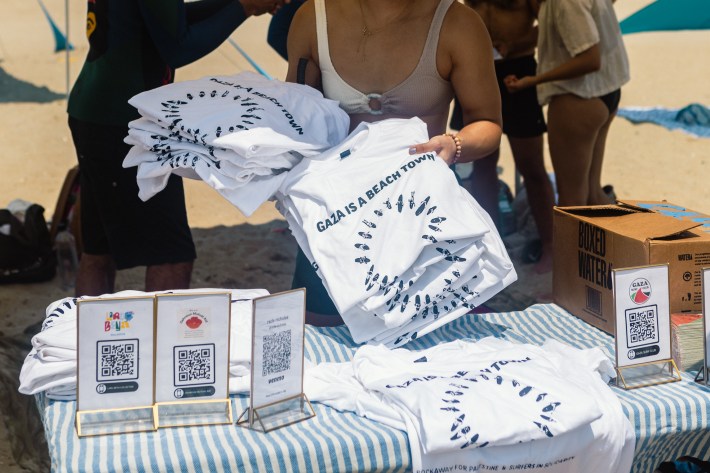

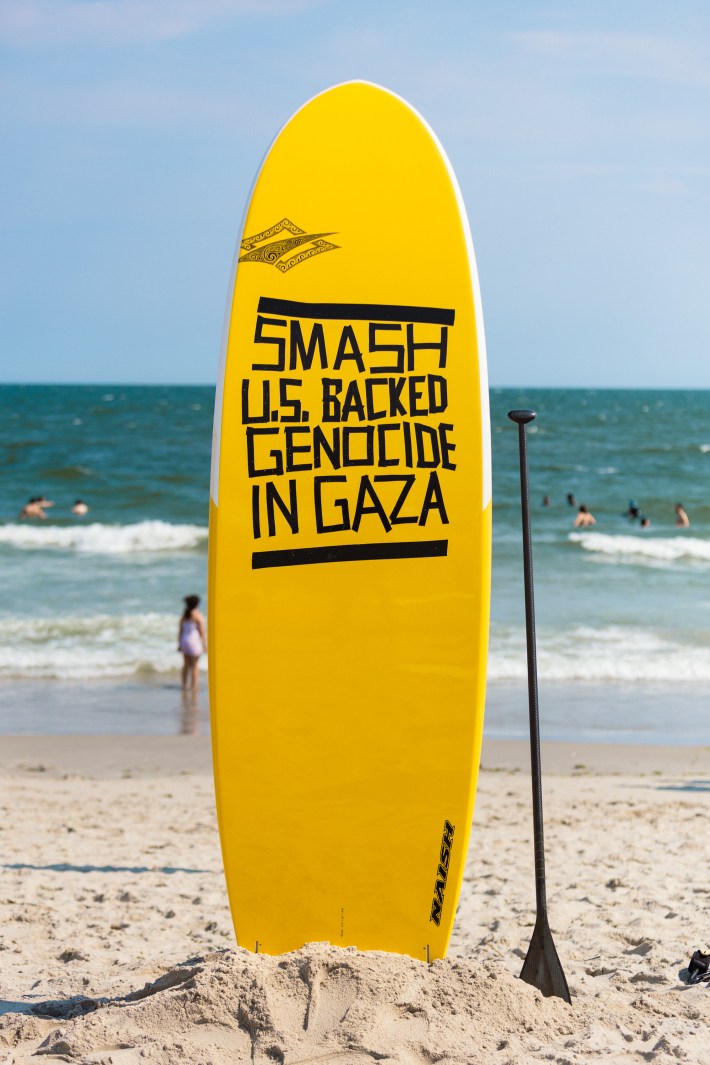
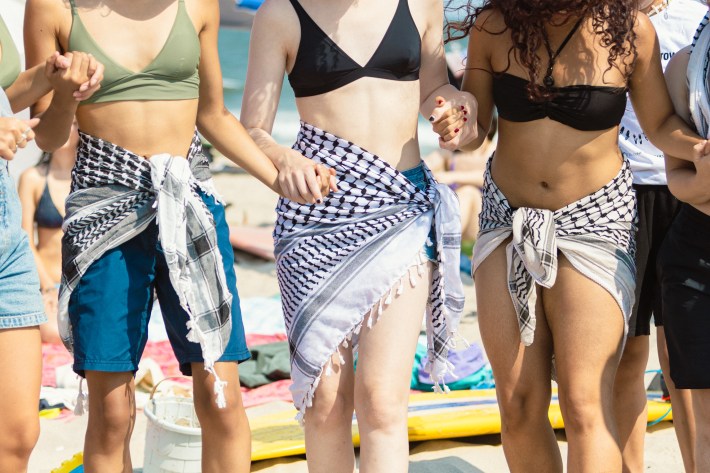
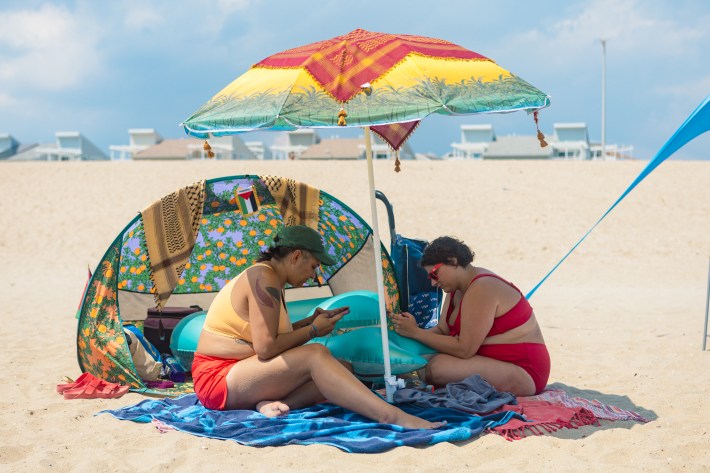
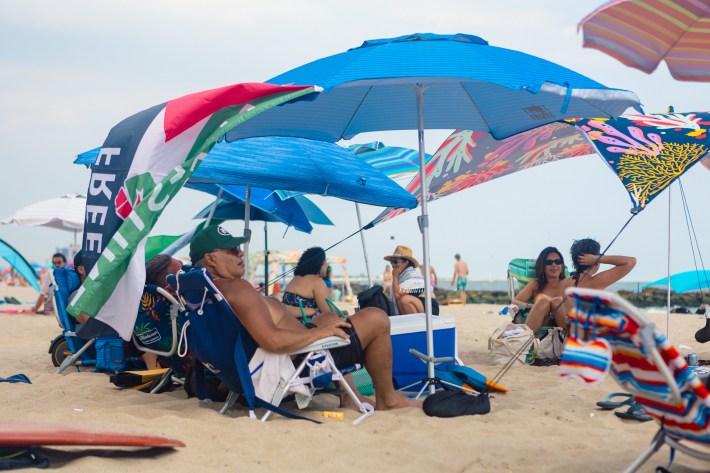
The paddle-out was scheduled for 4 p.m., but a few surfers had been at the beach since the early hours of the morning. During the planning of the paddle-out, Zane, a surfer and main organizer who requested his last name not be used, suggested they hold lessons as well to raise money for Gaza Surf Club, a group that supports Palestinian surfers in the Gaza Strip.
"We're very privileged to be able to live the life that we live and be surfing on the beach all the time. This is not the kind of life that they're living in Gaza right now," Farmata Dia, one of the surfing instructors, told me. "They are suffering through genocide, and not even receiving humane treatment. They're being tortured and killed left and right—women, children, husbands—families are being separated by the minute."
As an activist and a surfer who had found her love for the sport on the very same beach where we stood, Dia explained the connection that she and others felt with the surfing communities around the world, including in Gaza. Raising money through lessons was one of the ways she felt like she could show her support.
Zane, Dia, and Godette had each taught a lesson per hour since they had arrived at the beach. Despite the little sleep she had gotten the night before, Dia felt energized by the people who showed up. Two participants had driven from Washington, D.C., for the sole purpose of getting a surf lesson.
At the beach, the hours slip by quickly. But just before 2 p.m., I glanced down at my phone notifications after chatting with some surfers and gasped. I wasn't the only one who saw the news. The event's DJ, Fatin, cut the music to make an announcement.
"I don't know how you feel about this, but I'm excited," she said. "Joseph Biden pulled out of the race!" A cheer went up in the crowd. "I don't know what this means, but I'm hopeful for a better future than we had coming for us," she added. Then, Fatin turned up the music.
On the specific stretch of beach where Surfers in Solidarity and Rockaway for Palestine congregated, organizers set up two central tents. Underneath the shade, a few volunteers sold T-shirts and posters in an effort to raise money for Palestinian aid groups and a local Rockaway surfing non-profit. One tent over, a table held food donated by local businesses and community members: sliders, burritos, and, fittingly, trays of watermelon.
Further out from the tents, the Beach Day for Palestine group grew, with dozens of people mingling under beach shades or tanning on towels. Toddlers raced around, wobbling through the sand while their parents watched nearby. The only markers that delineated it from any other spot on the beach were the abundance of keffiyehs and Palestinian flags.
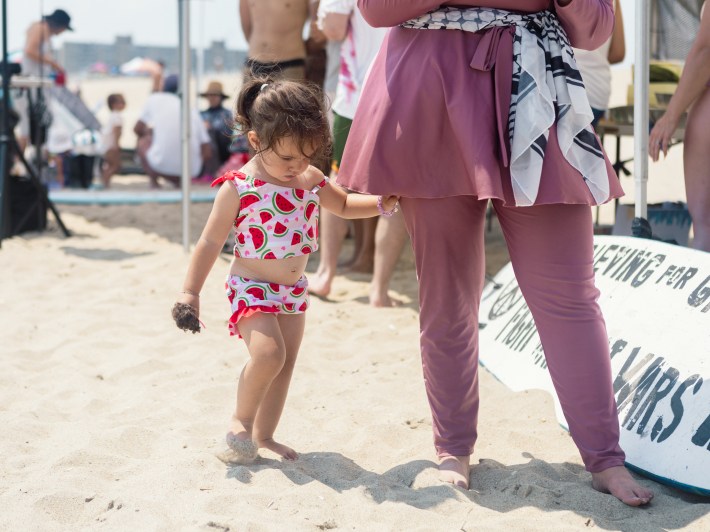
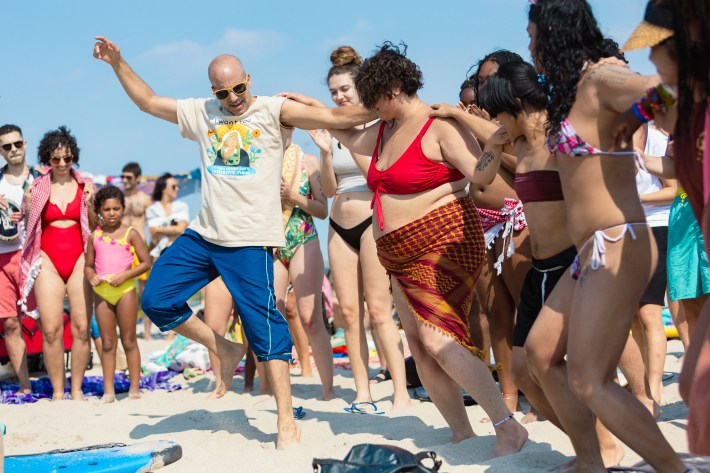
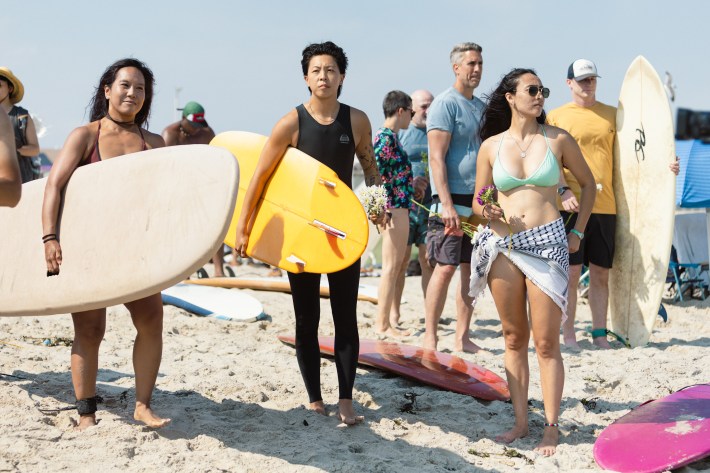
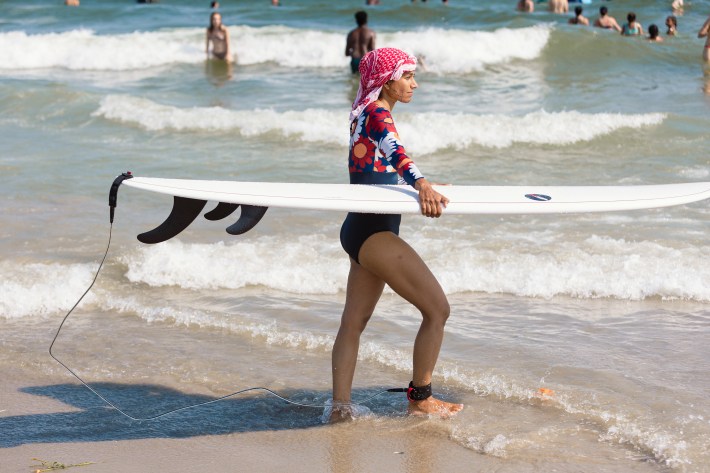
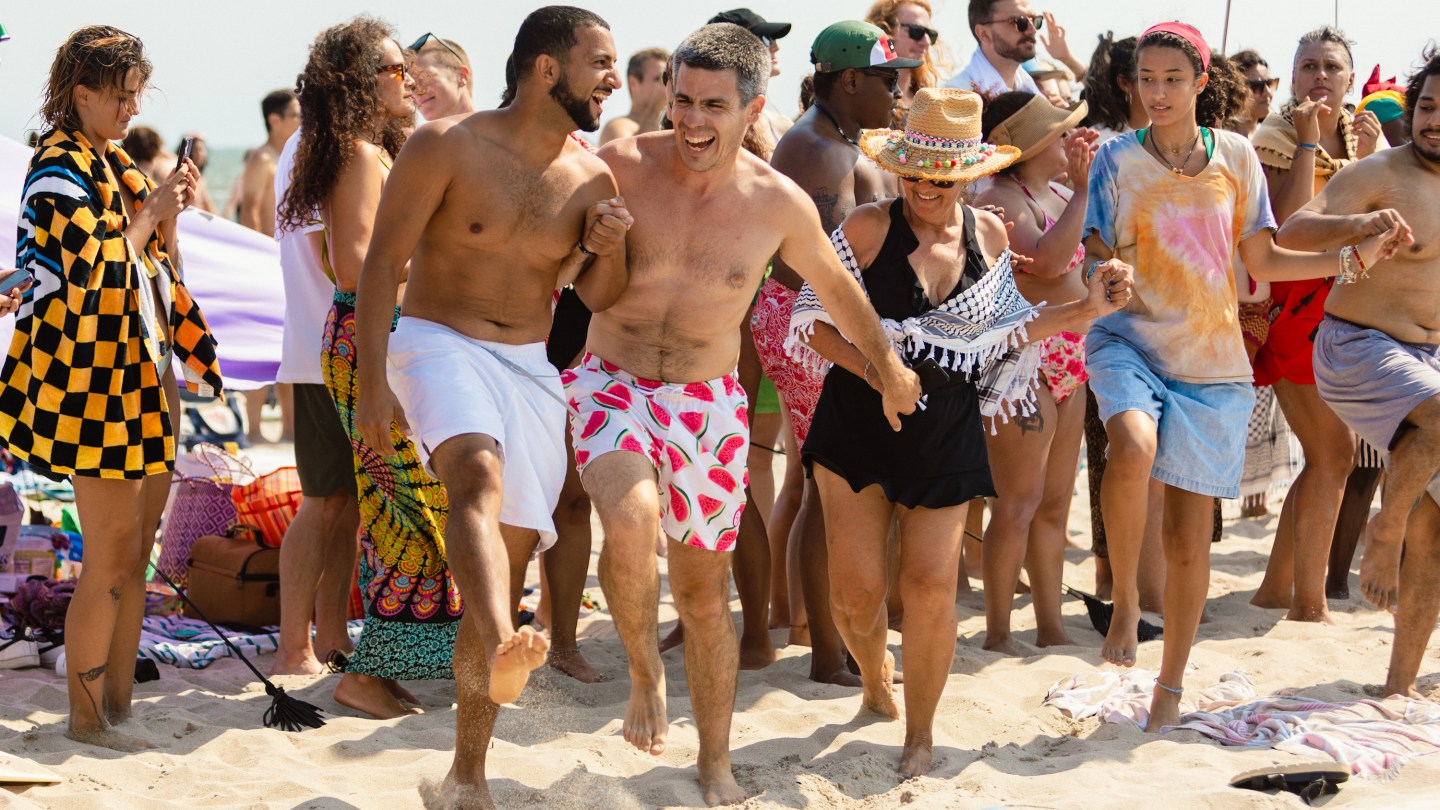
Shortly after 3 p.m., the music stopped for a series of speeches before the paddle-out. As a Palestinian surfer, Zane was one of the first to speak, his voice heavy with emotion as he spelled out the clear connection he and other surfers saw between their place in the sport and Palestine.
"If there are people who are best suited to understand what freedom and liberation means for all people, it is those who are tied to the ocean," Zane said. "... We know what liberation is, we know what freedom looks like, because we have been blessed with the ocean ... It is up to us to realize the liberation and freedom for Palestine and for all people on all fronts on all beaches around the world.
"Gaza is a beach town. It always has been, and always will be. Gaza is a beach town, not for Israeli developers or illegal settlements, but for the freedom of Palestinians to fish, surf, bathe, and to engage in unfettered enjoyment of living in relationship with the sea."
One of the other speakers was Tyler Breuer, a New Yorker and lifelong surfer who hosts a local surf podcast called Swell Season. He explained the history of paddle-outs to the crowd, emphasizing their role in protest and counterculture.
"We do paddle-outs for different reasons, because we're the canary in the coal mines when it comes to the pollution and all the environmental degradation," Breuer said. "So when someone tells you that surfing is not political, they're wrong."
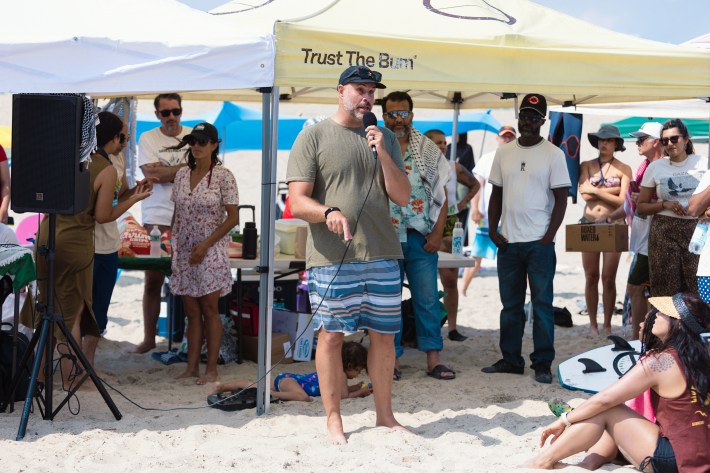
At the end of the speeches, a Rockaway for Palestine organizer named Ibrahim gathered the crowd to teach them dabke, a traditional Palestinian dance, before the paddle-out. Strangers and friends held hands in a circle, laughing and smiling as they learned simplified steps for the dance. When they finally broke away, the surfers grabbed their boards and received flower stems, a part of the mourning ritual for paddle-outs. Everyone went to the water.
The surfers entered the water with keffiyehs on their heads, some with flower stems gripped in their teeth. A few carried Palestinian flags. They swam into the ocean, settling in a spot around 100 meters from the sands. At the shore, with others gathered knee-deep in the water to watch, the only sound was the waves lapping.
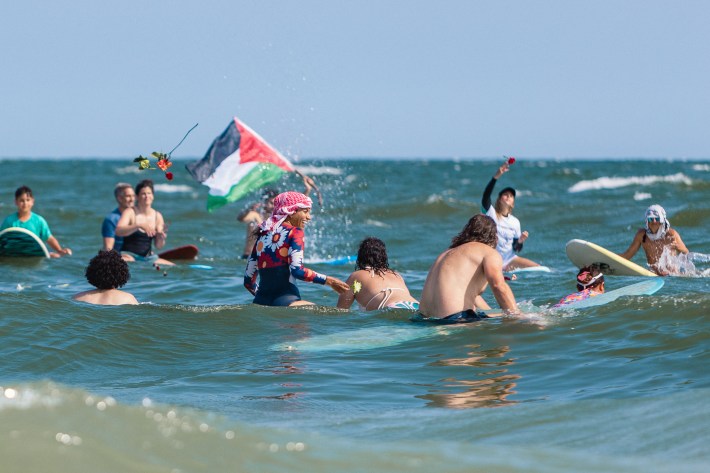
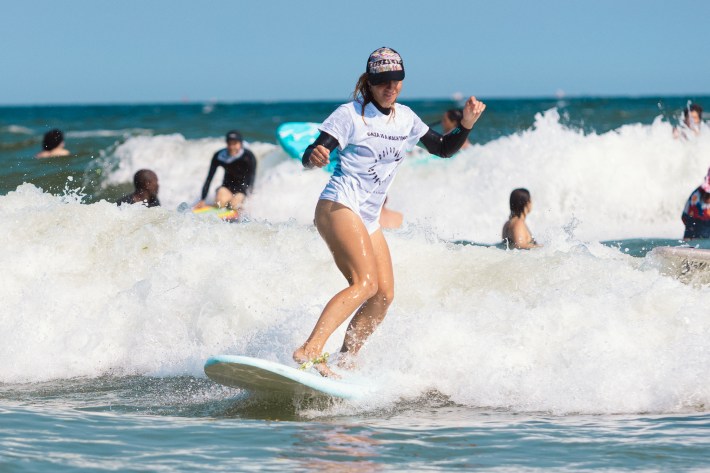
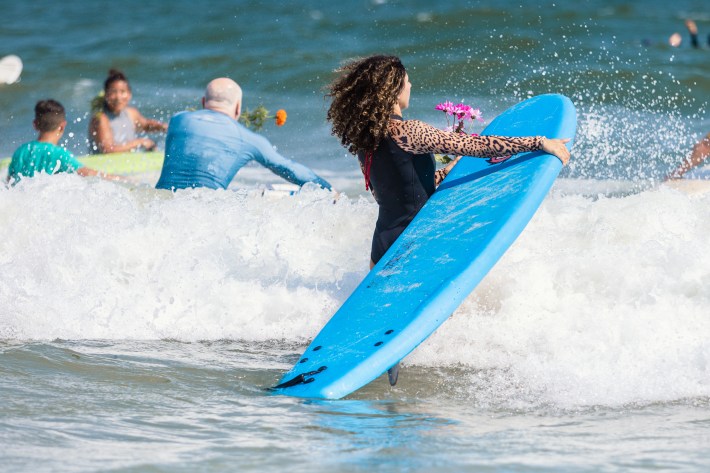
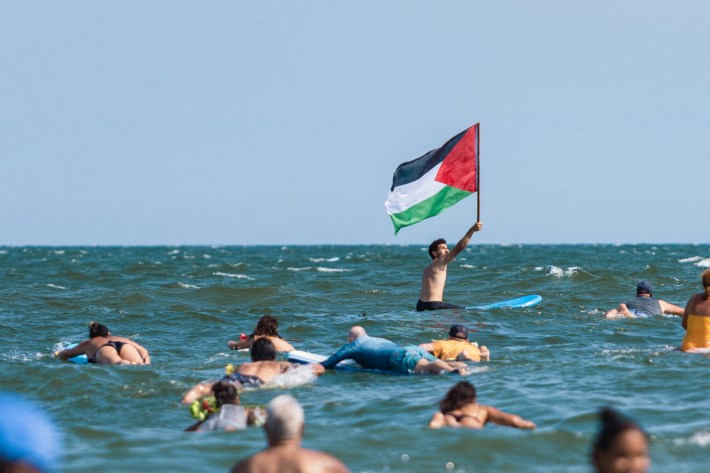
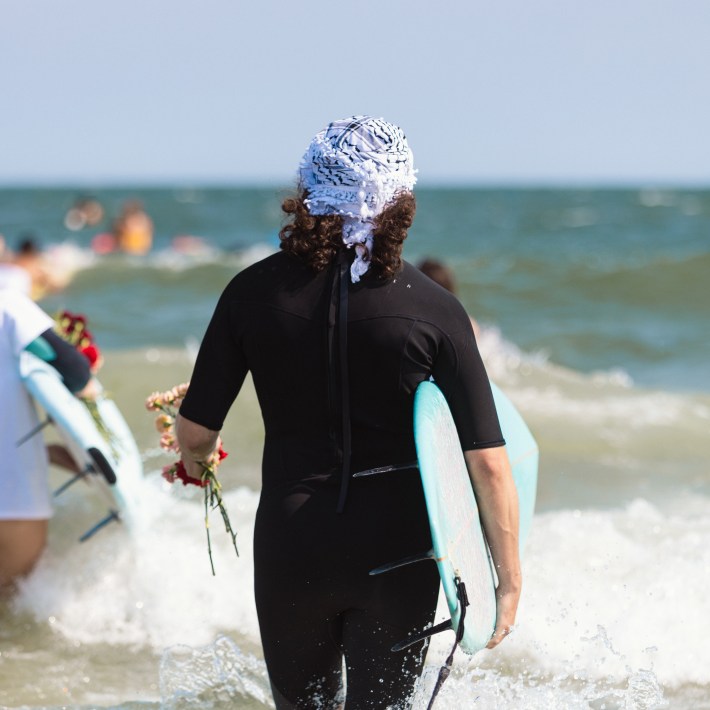
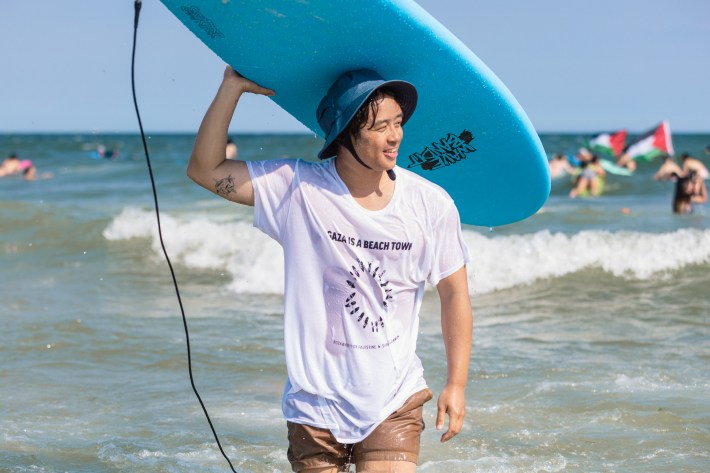
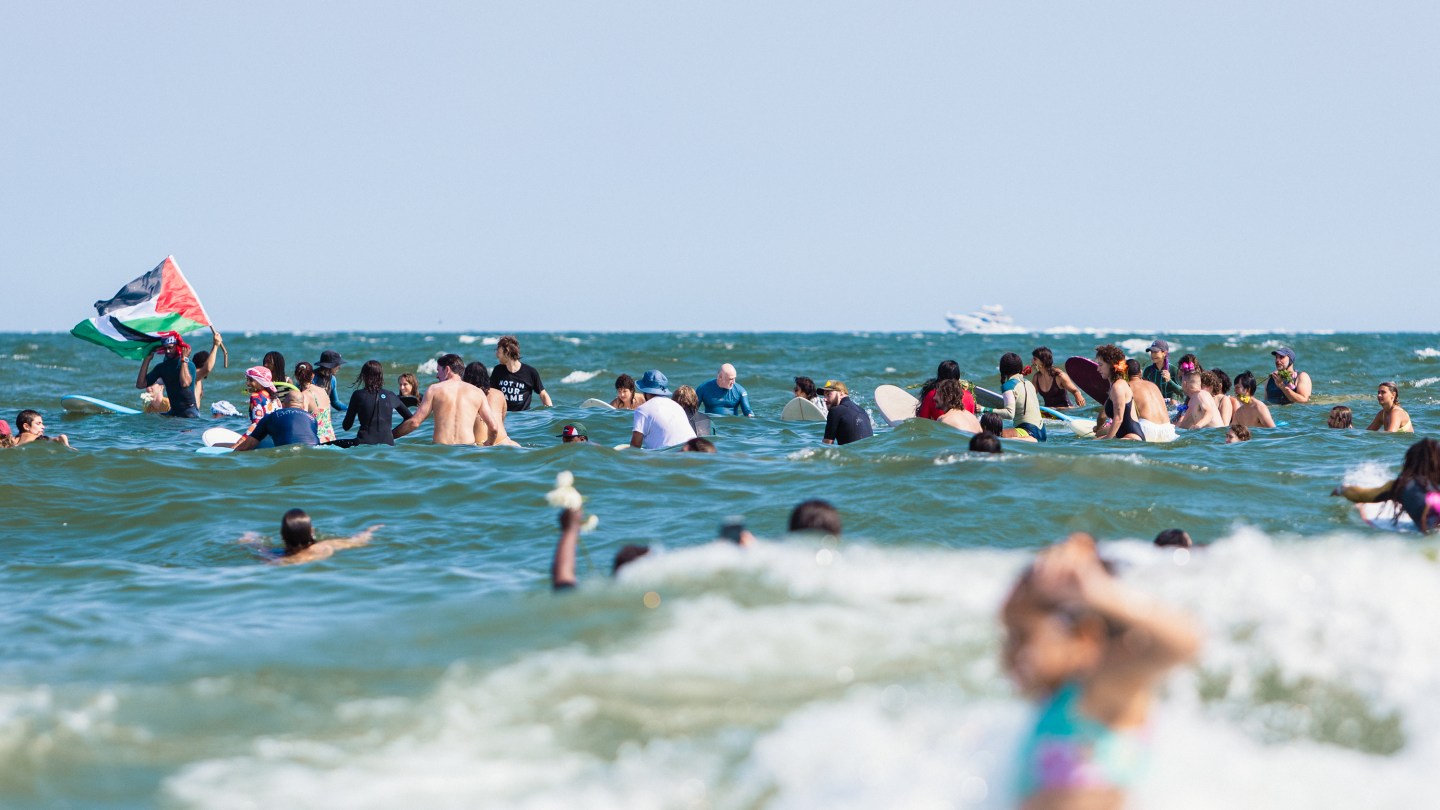
Later on, Nick, the lead organizer for the Beach Day and a Rockaway resident who requested his last name not be used, told me what it felt like to be in that circle of surfers.
"It's a mourning for me," Nick said. "It's been relentless the last 10 months. Every day, I wake up and watch the videos. A girl that looks like my daughter has been starved to death by Israel, shot in the head by a sniper, turned into pieces by one of Israel's bombs—my country is supplying them. I have a lot of rage and a lot of sadness ... [the paddle-out] was a release of feelings."
Within the circle of surfers, they chanted and grieved together. At the end, they tossed the flowers into the ocean. Droplets of water flew into the air as the surfers splashed with their hands. The waves grew in motion before the surfers returned to the shore, lighter in what they carried but still heavy in what they held.
"It's been a good day," Nick told me. "Even people in the neighborhood who I didn't know cared about Palestine [showed up].
"We're here living in the sun, and everything's beautiful. But it's important that we actually remind people something's happening. It's not all right to just ignore it."
